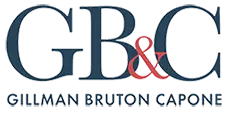The issue presented to the Court in Jordan v. Greentree Consumer Disc. Co. (In re Jordan), 2009 Bankr. LEXIS 583, 42-43 (Bankr. W.D. Pa. Mar. 27, 2009) was whether the an Section 1322(b)(2) of the United States Bankruptcy Code prevented the debtors from the modification of the mortgage on their home. The debtors argued the mortgagee had taken a security interest in their mobile home and that therefore the additional collateral for the loan placed it outside the protection of Section 1322(b)(2) which prohibits the modification of mortgages secured only by the debtors principal residence.
The mortgagee Greentree contended “that the Mobile Home must be considered real property rather than personal property under Pennsylvania law because the Jordan’s intended to attach it permanently to the Smithfield Property, thus making Greentree’s entire claim one secured by a security interest in real property that is the Debtors’ personal residence”.
In finding that the mobile home was additional collateral and therefore placed the debtors loan outside the anti-modification provisions of Section 1322(b)(2), the Court found that the mortgagees, who had the burden of proof, had not meet that burden and that proofs of claim filed by the mortgagee which were contrary to its argument were judicial admissions. The decision of the Court principally relied upon Scarborough v. Chase Manhattan Mortgage Corp., 461 F.3d 406 (3d Cir. 2006), where the Third Circuit made clear that “the critical moment” for deciding this very issue is… when the creditor takes a security interest in the collateral. ‘It is at that point in time that the underwriting decision is made and it is therefore at that point in time that the lender must know whether the loan it is making may be subject to modification in a Chapter 13 proceeding at some later date. Scarborough at 412.
“Section 1322(b)(2) continues to contain a “real property only” requirement notwithstanding the addition of Section 101(13A) to the Bankruptcy Code. See n. 9, 11, above. In other words, BAPCPA did not effect a change in the law whereby security interests in mobile homes are automatically protected, regardless of the surrounding circumstances, by the anti-modification provision of Section 1322(b)(2). The Court thus finds that the majority view is the correct one and adopts it.
Citing previous decisions the Court found the under “Pennsylvania law and found that chattels used in connection with real estate fall into one of three classes: (1) those which are manifestly furniture, which always remain personalty; (2) those which are so annexed to the property that they cannot be removed without material injury to the real estate, which are always realty; and, (3) those which, although physically annexed to the realty can be removed without materially injuring either the chattels themselves or the realty, which can become part of the realty or remain personalty depending on the intention of the parties at the time of annexation. See 321 B.R. at 681 (citing Clayton v. Lienhard, 312 Pa. 433, 167 A. 321 (1933)).
“In support of their argument, the Jordan’s point out that the Note and Mortgage documents separately refer to the land and the Mobile Home and clearly state that Conseco (Greentree’s predecessor in interest) was at that time granted a mortgage on the land and a security interest in the Mobile Home. Further, the Jordan’s claim and Greentree does not dispute, that they did not actually take possession of the Mobile Home until a few months after executing these documents. They argue that the language from the Note and Mortgage clearly indicates an intention for a mortgage to be placed on the real estate and a separate security interest to attach to the personal property. When those documents were signed, they argue, is the “critical moment” for determining the applicability of Section 1322(b)(2). They also argue that it is significant that the Mobile Home was not even specifically identified at the time of the loan document execution and, in fact, was not acquired by them until several months later. As a result of all the foregoing, the Jordan’s claim that the Mobile Home can only be classified as personalty, not real property. Finally, the Jordan’s argue that even if the Court were to look at the Nowlin factors, the same conclusion should be reached since only the first factor (common ownership of land and mobile home) would support a finding of realty in this case.”
The debtors argument relied upon In re Wilson, 895 F.2d 123 (3d Cir. 1990), which they claim stands for the proposition that the subjective intent of the parties is irrelevant for purposes of Section 1322(b)(2). They also direct this Court to Scarborough v. Chase Manhattan Mortgage Corp., 461 F.3d 406 (3d Cir. 2006), where the Third Circuit made clear that “the critical moment” for deciding this very issue is… when the creditor takes a security interest in the collateral. ‘It is at that point in time that the underwriting decision is made and it is therefore at that point in time that the lender must know whether the loan it is making may be subject to modification in a Chapter 13 proceeding at some later date’. Scarborough at 412 (quoting In re Bulson, 327 B.R. 830, 846 (Bankr. W.D. Mich. 2005)).”
“[It] is important to keep in mind that Greentree bears the burden of proof to show that its claim falls within the anti-modification protections afforded by Section 1322(b)(2). See In re Picht, 396 B.R. 76, 79 (Bankr. D. Kan. 2008); In re Petrella, 230 B.R. 829, 832 (Bankr. N.D. Ohio 1999); In re Larios, 259 B.R. 675, 678 (Bankr. N.D. Ill. 2001). Thus, it is up to Greentree to convince the Court that its claim is secured only by real property. If Greentree fails in this regard, the Court must find in favor of the Jordan’s on this issue.
The Court concludes that this question is properly analyzed under the law of judicial admissions. “[J]udicial admission” is an admission made by a party in pleadings, stipulations and the like. In re Pittsburgh Sports Assocs. Holding Co., 239 B.R. 75, 81 (Bankr. W.D. Pa. 1999). An unequivocal judicial admission is binding on the party who made it for the purposes of the case in which it is made. Id. A judicial admission is to be distinguished from an evidentiary admission, for example, a statement made outside the pending litigation that is inconsistent with a position being taken in the pending litigation and which is admissible but not conclusive. See, e.g., Matter of Cont’l Airlines, Inc., 125 B.R. 415, 417 (Bankr. Del. 1991).
The Court concludes that the “statement” by Greentree in the Proofs of Claim regarding the nature of the collateral is a judicial admission, not simply an evidentiary admission. It is well-recognized that the filing of a proof of claim is analogous to the filing of a complaint in a civil action. In re Arnott, 388 B.R. 656, 658 (Bankr. W.D. Pa. 2008). If this were just a contested matter involving an objection to Greentree’s claim there is no doubt that the statements in the Proofs of Claim would be judicial admissions.
Even though this case is decided in Pennsylvania, the case points toward the options which may be available to a Debtor in a Chapter 13 bankruptcy case in attempting to propose a modification of mortgage obligations. It is extremely important to note the effect of the proofs of claim filed in chapter 13 bankruptcy cases and the arguments to be used by a debtor and their counsel.


